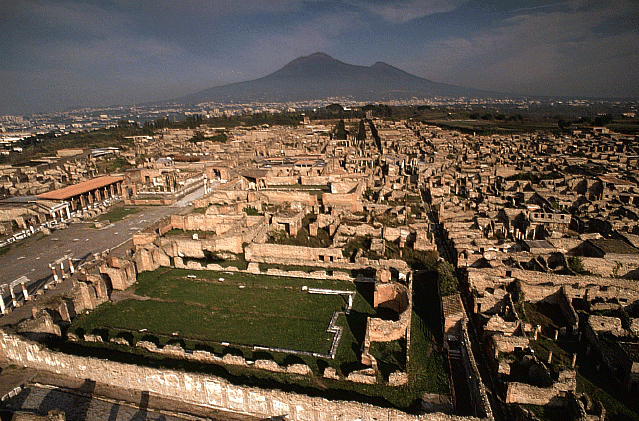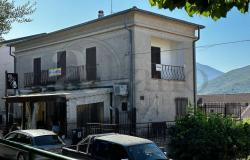words by Gabi Logan
The European Commission and the Italian Government have jointly pledged 105 million euros to the Great Pompeii Project, a four-year plan to coordinate restoration and on-going conservation efforts at the important historical site, an ancient city uniquely preserved for millennia in volcanic ash after the eruption of Mt. Vesuvius in 79 A.D.
High-publicized collapses at the site have concerned both scholars and the public about the future of the ruins and the effectiveness of the Italian government in protecting the historic monument. In November 2010, a training building for young gladiators along Pompeii's main street collapsed, followed that December by the collapse of wall surrounding a building known as the House of the Moralist. A column outside the former home of a Roman nobleman crumbled this past December.
The Great Pompeii Project will provide funds for much needed restoration projects and increase the number of archaeologists regularly on hand at Pompeii. Currently only one archeologist works on the site full-time.
Italy's current director-general of the Culture Ministry, Mario Resca, announced last week that he is pushing the Italian government to open the preservation of its cultural heritage to private and foreign investment. Italian billionaire Diego Della Valle has pledged 25 million euros for work on the Colosseum, but recent reports indicate that he may pull the funding in light of union protests.
Around Italy, museum heads and concerned citizens have protested the government's lack of arts funding within the new austerity budget. Curator Antonio Manfredi at the Casoria Contemporary Art Museum outside Naples lit a work of art on fire this Tuesday to highlight the fact that the works are headed for destruction in the current political environment. Officials at Maxxi, Italy's national museum of contemporary art, are speaking out publicly about the lack of government support after the Culture Ministry replaced the board of directors last Friday.












